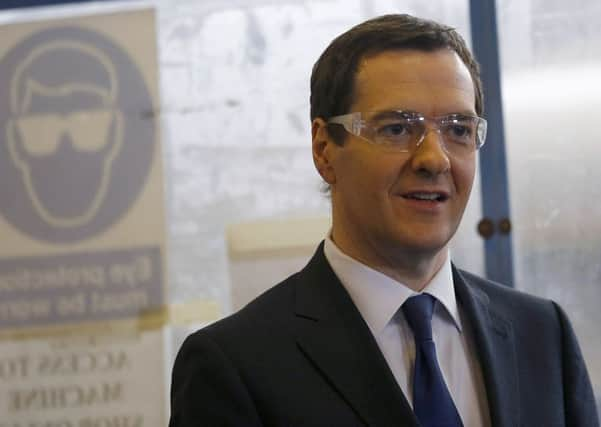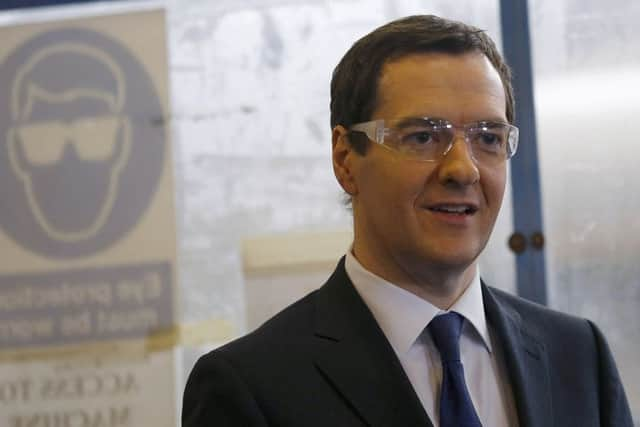‘Determined’ Osborne extends successful Lloyds share sell-off


The Treasury has reduced its shareholding in Lloyds from just under 25 per cent since the six-month trading plan for a gradual disposal of the stock through investment bank Morgan Stanley was announced in December. That exercise has raised almost £3.5 billion.
The government has now extended the trading plan, which was due to expire at the end of this month, until 31 December as it was hailed a “huge success” by the Chancellor. The move is likely to mean another chunk of about 6 per cent of the stock is sold into private hands during the rest of this year.
Advertisement
Hide AdAdvertisement
Hide AdYesterday’s announcement came alongside the latest market disclosure that the Treasury’s holding in Lloyds has fallen to a shade under 19 per cent after stock was sold just before the weekend.


During the trading plan so far, shares have been sold for an average price of more than 80p, well above the average 73.6p taxpayer buy-in price.
Osborne said that the taxpayer has now recovered more than £10.5 billion from the bank – which was rescued by a state lifeline at the height of the 2008 financial crisis.
“The trading plan has been a huge success, with almost £3.5 billion raised for the taxpayer so far,” Osborne said.
“This means we have now recovered over £10.5 billion in total – more than half of the taxpayers’ money put into Lloyds. But we’re determined to get on with the job of returning Lloyds to private ownership.
“That’s why I’m extending the plan for six months so that we can make even more progress in returning money to the taxpayer and paying down the national debt.”
A spokesman for Lloyds, headed by chief executive Antonio Horta-Osorio, said the announcement by UK Financial Investments, which monitors the taxpayer stakes in the bank and fellow bailed-out lender Royal Bank of Scotland, showed “the further progress made in returning Lloyds Banking Group to full private ownership and enabling the taxpayer to get their money back”.
He added: “This reflects the hard work undertaken over the last four years to transform the group into a simple, low-risk and customer-focused bank that is committed to helping Britain prosper”.
Advertisement
Hide AdAdvertisement
Hide AdOne City banking analyst said: “Firing the starting gun on further Lloyds share sales and continuing to get the taxpayer out of the bank at a profit is good public relations for the government.
“But it will also help the investment case for Lloyds as it makes the stock far more attractive when it is clear there is far less government backseat influence.
“Lloyds restoring the dividend earlier this year for the first time since the crash and bailout was a pivotal moment in terms of stock market sentiment. This will also help.”
The Chancellor has already set out separate plans to sell about £4bn of taxpayer shares in Lloyds through a discounted offer to retail investors in the next 12 months.
The exercise raises strong echoes of the major Thatcherite privatisations of the 1980s, including British Telecom in 1984 and the “Tell Sid” British Gas sell-off in 1986.
As well as raising money for the state, the 1980s privatisations – which also included British Airways, BP, the British Airports Authority, Rolls-Royce and British steel – were meant to encourage ordinary Britons to invest in companies.
Thatcher’s government sold £3.9bn of shares in British Telecom and £5.6bn of shares in British Gas. Other privatisations included British Steel in 1988 and the water industry in 1989, while her successor John Major’s government followed through with the controversial British Rail privatisation that was kickstarted in 1995.